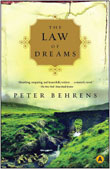Ever since the l970’s, the trend of multiculturalism has been
sweeping societies of the West. Many people feel that while this is
meant to honour multiple identities, it also leaves too little to bind
us together.
In his new book, author and religious thinker, Rabbi Jonathan
Sacks, looks at society as a home that we build together. As Chief
Rabbi of the United Hebrew Congregation of Britain and the
Commonwealth, he includes the place of religion in this unifying plan.
He suggests the U.K. once thought of society as a country-house,
with newcomers finding their place as guests. But this became
condescending and unwelcoming. In the U.S. he says society became
more of a hotel, but this can turn into a cold melting-pot. The new
technology, Email, satellite TV, internet, he sees as driving us
apart. And so he stresses liberal democracy which honors the
distinctions of politics, religion and law without blurring them, but
concentrating on society, with its “neutral spaces” of universities,
libraries, parks to pull us together.
He writes of rebuilding the family, and community service through
religion. He tells how the Israelites built their first Tabernacle,
after being freed, and thus became a covenanted nation. He believes
the U.K. should institute a Britain Day, and teach the history of
their nation. Strange for a Canadian to read this when we feel
even more remiss about our own history lessons !!! and sometimes long
for another Expo 67 when the whole country felt pulled together.
Book Review by Anne McDougall
 With Barack Obama so much in the news these days, it is helpful to read this well-researched book by Chicago Tribune reporter David Mendell.
With Barack Obama so much in the news these days, it is helpful to read this well-researched book by Chicago Tribune reporter David Mendell.
